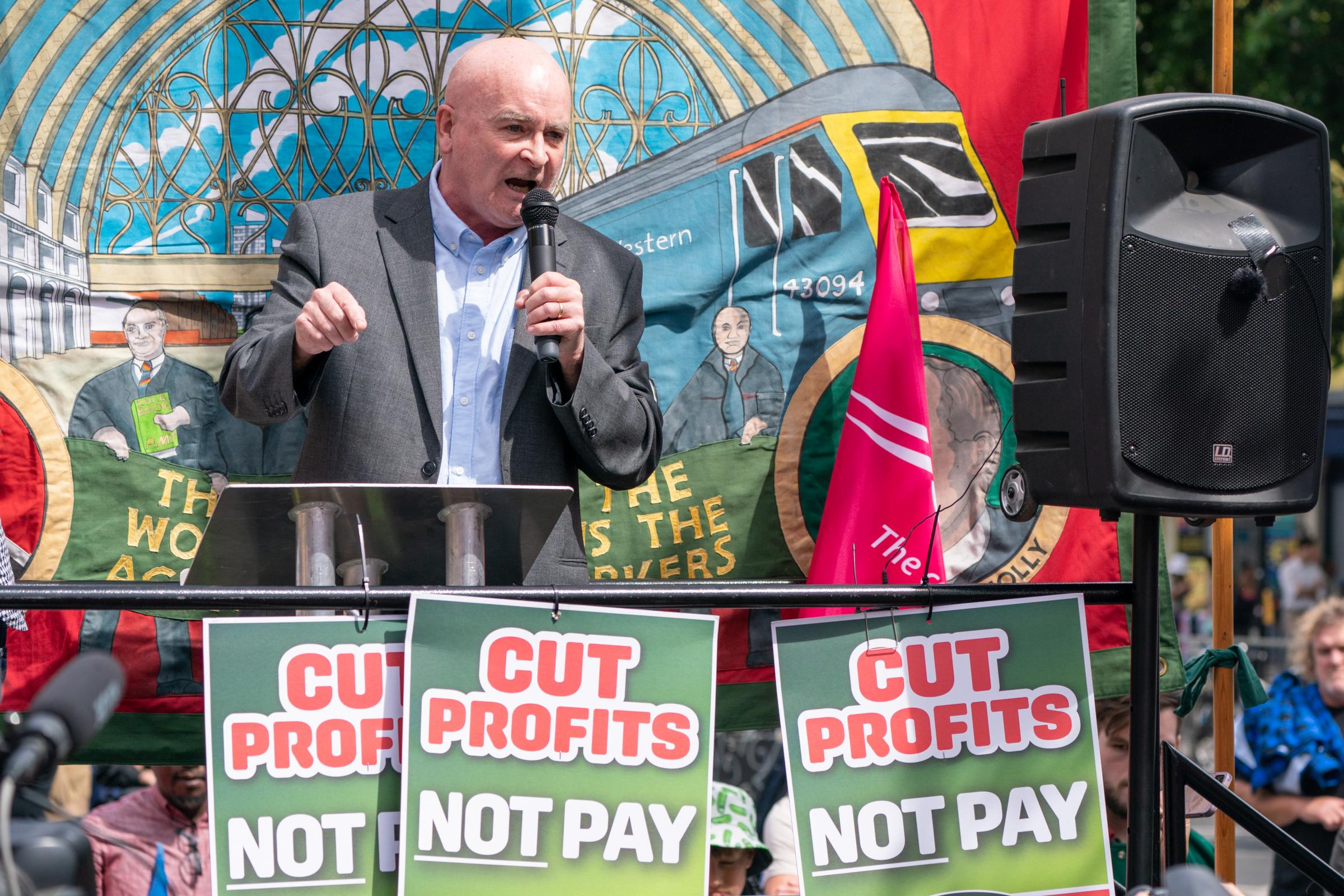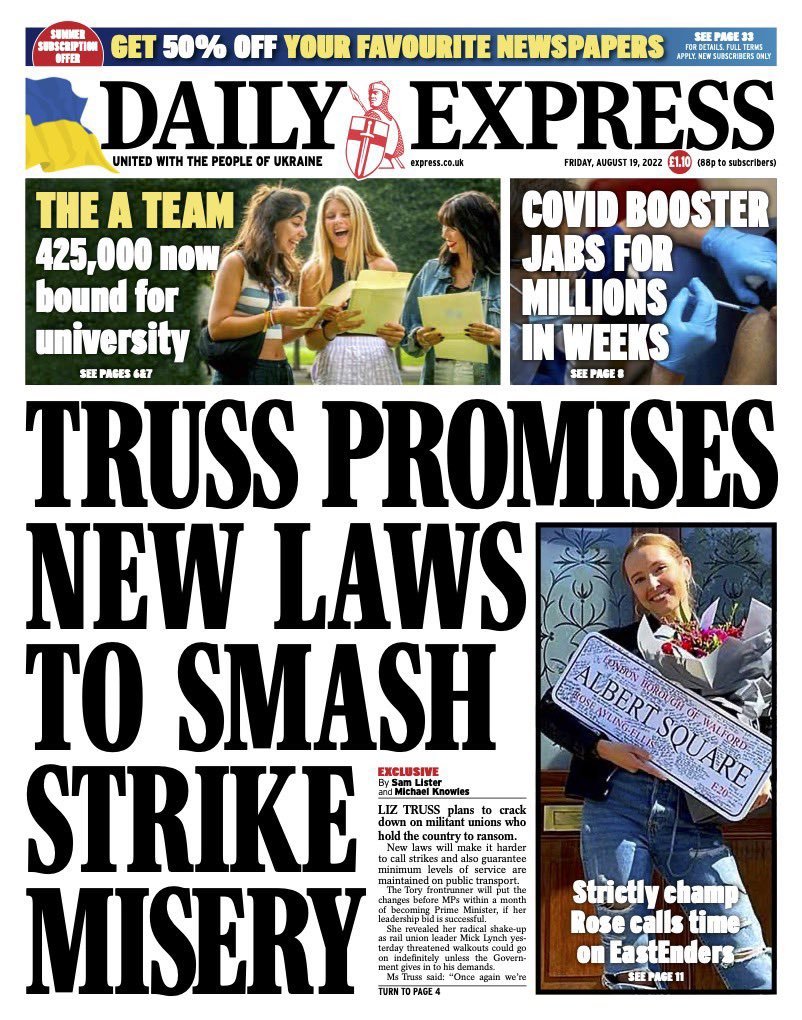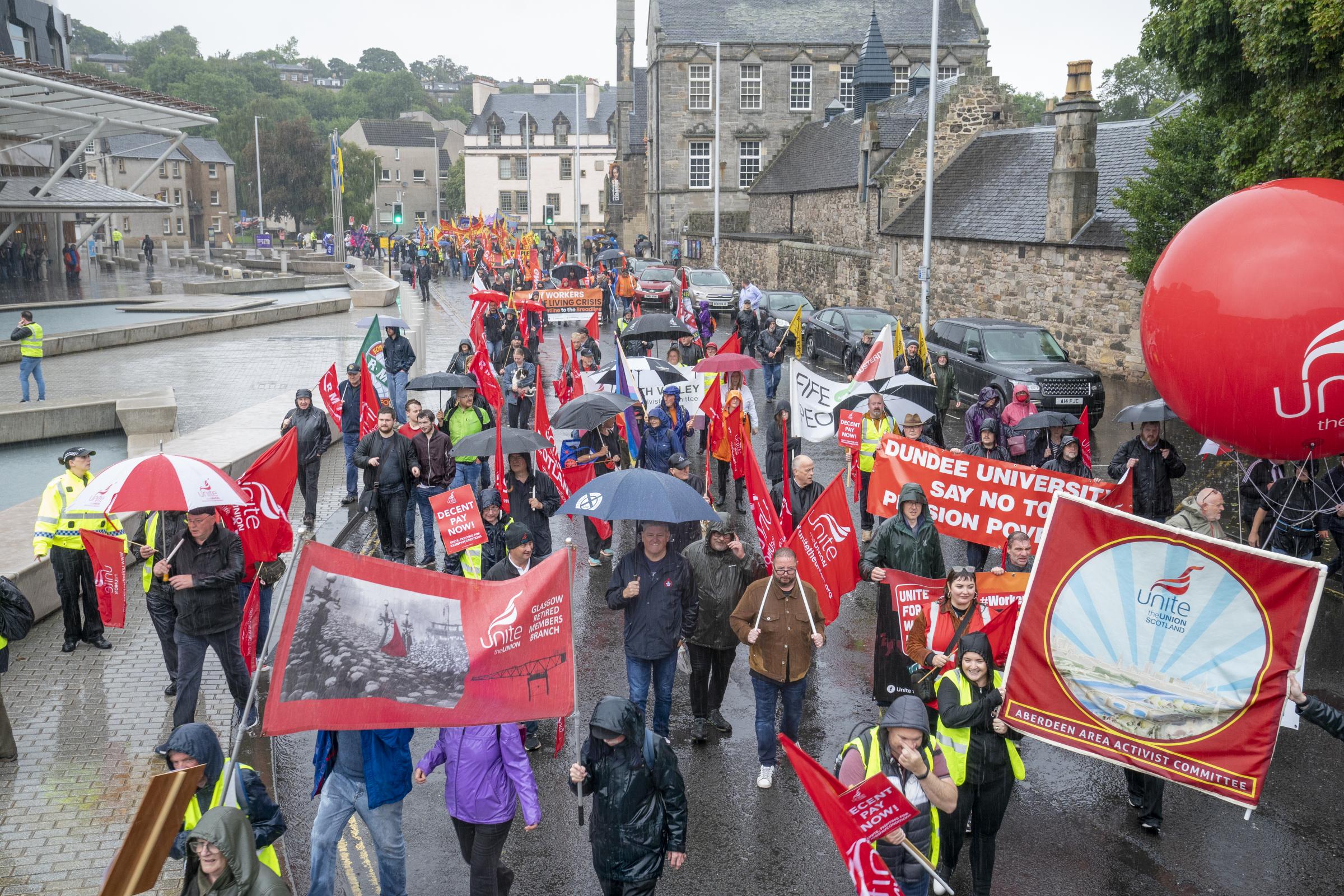
TRADE unions at their highest ebb after years outside the political mainstream took the decision immediately after the death of the Queen to suspend strikes and mass meetings as a mark of respect to the monarch.
Some saw it as pussyfooting at a time when the labour movement, currently in its rudest health since trade unions were brought to heel under Margaret Thatcher in the 1980s, should be bold and brave.
Other pessimistic left-wing commentators said it was a sign the newly emboldened movement would not live up to its promise and that trade unions were too inherently conservative to effect real change.
Striking workers in Scotland won pay rises earlier in the month and figures such as the RMT’s Mick Lynch have attracted huge crowds at rallies which hark back to the days of mass-membership of trade unions.
Cast out
Britain is not traditionally sympathetic to trade unions. Thatcher was propelled to power in 1979 after a long decade remembered best in modern times for crippling strikes more than anything else.

Her government made it harder to strike and crushed the power of unions, ushering in a period of long-term decline in membership.
At the peak of their newfound power, strikes which had been planned for September, as well as the Trades Union Congress, which was set to go ahead on Saturday, have all been cancelled in a mark of respect to the late Queen.
Some workers are angry about unilateral decisions taken by union strike committees to call off industrial action in deference to the royal family.
Pandering to the right?
A Glasgow school teacher – who spoke with The National on the condition of anonymity – said she was deeply concerned the trade union movement was at risk of losing momentum, adding that decisions to call off strikes were “pandering to the right”.
Speaking in a personal capacity, the EIS representative, said: “The bosses aren’t all of a sudden feeling benevolent towards workers – they’re not going to suddenly give us pay rises, they’re not going to go: ‘Oh, the Queen’s died, we should be really nice to the workers now.’

“They’re just going to use this as an opportunity and we’re letting them do it.”
While the EIS is still balloting their members on whether to walk out for increased pay, unions including the RMT and the CWU called off strikes planned for later this month, following the announcement on Thursday the Queen had died.
The source added: “The kind of people who are going to attack you for going ahead with strike action are the kind of people who would attack you anyway.
“I think it’s pandering to the right, it’s pandering to a class and a demographic of people who are never going to back strike action anyway.”
She also raised concern that the decisions to call off strike action appeared to have been taken on a whim and that all members of the unions in question were not consulted.
'Let's not risk losing a good position'
But some feel restraint was sensible, saying the public mood in such an unusual situation was “unpredictable” and that backlash against trade unions would be the real deciding factor in squandering the momentum built up in recent months.
Jim Phillips, industrial relations expert and professor of economic and social history at Glasgow University, said trade unions were in a “very strong position” but this was “fragile” and making potentially unpopular moves at a time of declared “national mourning” risked them losing the public’s goodwill.

He warned that trade unions have to operate within the “mainstream of public opinion”, with around 62% of Britons in favour of the monarchy, according to YouGov polling earlier this year.
“The noise from the right-wing press would have increased against the unions,” he said.
“I think what we’ve seen here is a further expression of the very good leadership that’s been shown by the unions.
“You can imagine the front pages of the Daily Express, the Daily Mail and the anti-trade union press today. So let’s not give them a chance.”
He also criticised a “far-left position” which would press ahead with the strikes without regard to public opinion.
“Their only answer to difficulty is attack and that would be adventurous, it would be wrong,” Phillips added.
“You would expose yourself, you would expose your members to counter-attacks and it’s not needed.
“It’s like being a football team that’s winning 2-0 with five minutes to go and sending everybody forward for a corner-kick.
“Hang back, wait and see, let’s not run any risk of losing a good position.”







